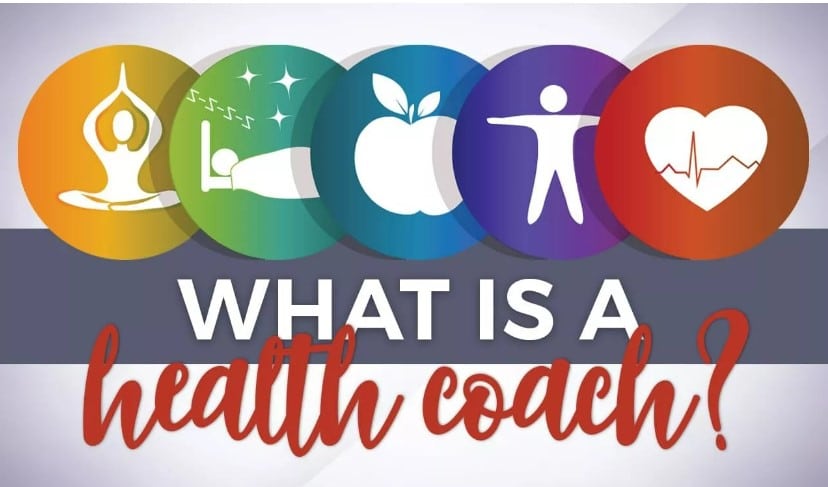
When striving for a healthier and more balanced life, you’ll likely seek guidance from professionals who specialize in promoting well-being. Two commonly used terms in the health and wellness community are “wellness coaching” and “health coaching.” While these titles are often used interchangeably, there are nuanced differences between the two roles.
What Exactly Is a Coach?
A coach is a trained professional who guides and supports those seeking to enhance specific aspects of their lives. They work with their clients to identify goals, overcome challenges, and implement actionable strategies for personal and professional development. People are increasingly turning to coaches to address various needs, such as improving health, achieving career objectives, enhancing leadership skills or improving their lives in general.
Following the pandemic, many began questioning what was truly important in their lives, leading them to seek a deeper sense of purpose. This search led to coaching gaining significant popularity, causing several to find life coaches, business coaches, health coaches and wellness coaches. The evolving complexities of life and a growing emphasis on self-improvement contribute to the continued relevance and adoption of coaching services across diverse fields.
Defining Health Coaching
Health coaching typically concentrates on the physical aspects of wellness. These professionals guide individuals through lifestyle changes that directly impact their body’s well-being, such as nutrition, exercise and disease prevention.
The health coaching industry is booming, with experts expecting the market value to double in the next 10 years. There are currently more than 23,000 health coaches working in the United States, showing the growing demand for their expertise.

Key Aspects of Health Coaching
Health coaches will focus on:
- Physical health: The emphasis is on tangible actions that contribute to a healthy lifestyle.
- Preventive measures: Health Coaches often engage in proactive health management, guiding clients to adopt preventive measures to reduce the risk of chronic diseases. These measures may include personalized nutrition plans, fitness routines and stress reduction strategies.
- Goal-oriented approach: Coaching involves setting and achieving specific health-related targets. These are often measurable and can include weight management, improved fitness, and improved overall physical well-being.
- Disease management: Health coaches are vital in helping individuals manage existing health conditions. To manage disease, coaches usually educate clients on lifestyle modifications, adherence to medical recommendations, and developing strategies for coping with health challenges.
What Services Do Health Coaches Offer?
Health coaches offer a range of services tailored to improving physical health and overall well-being. These services often include:
- Personalized nutrition guidance
- Customized fitness plans
- Weight management strategies
- Disease prevention education
- Disease management strategies
- Lifestyle modification support
- Time management strategies
The Benefits of Health Coaching
A health coach can provide personalized guidance, creating customized plans catering to your individual health needs and goals. They can assist you in adopting sustainable lifestyle changes that facilitate achieving and maintaining a healthy weight. Improvements in physical health as a result of guidance from a health coach are most notable in middle-aged adults.
These experts educate clients on targeted interventions related to nutrition, exercise and lifestyle choices to prevent disease. Additionally, health coaches offer support in making lasting lifestyle modifications, such as quitting smoking or improving sleep. Sleep deprivation can have multiple adverse effects — including low immunity and weight gain — so individuals struggling with sleep can particularly benefit from a health coach. These modifications contribute to enhanced energy levels and improved vitality in daily life.
Do Health Coaches Need a Certification?
You can call yourself a health coach without any formal qualification, but this depends entirely on the country, state or city you live in. While a health care accreditation isn’t necessary to become a health coach, it can give you credibility in the field.
Regulations vary, but certifications from reputable organizations signify a health coach has completed formal training, acquired essential skills and adheres to ethical standards. The programs often cover topics like nutrition, exercise science, behavior change and coaching techniques. If you’re searching for a health coach, it’s wise to find one credentialed as a National Board-Certified Health and Wellness Coach (NBC-HWC), as they’ll likely have more knowledge and expertise.
Clients are more likely to trust and benefit from a coach with recognized credentials, and many employers at health care institutions require certification as a prerequisite for hiring. This requirement is because accredited health care institutions are more likely to adhere to evidence-based processes when caring for patients.

Defining Wellness Coaching
Wellness coaching encompasses a holistic approach to health that goes beyond the physical aspect. A professional in this field fosters overall well-being, including mental, emotional, physical and spiritual dimensions.
For example, poor emotional health can lead to physical health issues. Wellness coaches work with individuals to identify and achieve personal goals, addressing various aspects of life that contribute to a person’s sense of balance and fulfillment.
Key Aspects of Wellness Coaching
Wellness coaches prioritize:
- Holistic approach: They view health as a multi-faceted concept, considering physical, mental, emotional, social and spiritual well-being. This holistic perspective recognizes balancing all areas contributes to overall health.
- Behavioral change: One of the primary objectives of wellness coaching is to identify the root causes, and develop strategies to adopt and sustain healthier behaviors across various domains.
- Mind-body connection: Wellness coaching emphasizes the intricate relationship between mental and physical health. Clients explore how thoughts, emotions and lifestyle choices interconnect, influencing their overall well-being.
- Lifestyle management: Wellness coaches work collaboratively with clients to create personalized plans for managing various aspects of their lives. These plans may include stress management, work-life balance, movement and cultivating positive habits.
What Services Do Wellness Coaches Offer?
Wellness coaches provide services encompassing an individual’s holistic well-being. These typically include:
- Lifestyle management and balance
- Stress reduction techniques
- Goal setting and achievement
- Relationship and communication guidance
- Emotional resilience development
The Benefits of Wellness Coaching
Choosing a wellness coach extends the focus beyond physical health to encompass holistic health. They address various dimensions of well-being, whereas health coaches focus primarily on physical health.
One of the significant benefits of working with a wellness coach is stress reduction, as they equip individuals with strategies and techniques to manage it, fostering mental resilience and emotional well-being. Pressure can lead to depression and anxiety, which affects more women than men. Those struggling with high stress levels may find the guidance of a wellness coach especially beneficial.
These experts guide clients in setting and achieving meaningful goals, leading to a sense of accomplishment and purpose in life. They also offer guidance on interpersonal communication, relationship navigation and building positive connections with others. In essence, wellness coaching contributes to improved emotional intelligence and an overall sense of contentment in life.
Do Wellness Coaches Need a Certification?
While it’s not required, certification is also highly recommended for wellness coaches, as it serves as a testament to their competence and commitment to the profession. Wellness coaching certifications typically equip individuals with the knowledge and skills necessary to guide individuals toward holistic well-being.
A qualification adds credibility to a wellness coach’s practice, instills client confidence and often facilitates career opportunities. As the coaching industry grows, the emphasis on professional standards through certification is becoming more important.
Is a Health Coach and a Wellness Coach the Same Thing?
While there are distinctions between wellness coaching and health coaching, it’s crucial to acknowledge that the roles can overlap slightly. Many professionals in this field integrate wellness and health coaching approaches — often referred to as a functional approach, recognizing optimal health involves addressing various interconnected aspects of an individual’s life.

Choosing the Right Coach for You
When deciding between health coaching and wellness coaching, you must consider your specific goals. A health coach may be ideal if your main focus is physical health, weight management or disease prevention. Alternatively, if you’re looking for a more comprehensive approach to addressing your overall well-being, you may find a wellness coach is better suited to your needs.
- Heath coaching concentrates on improving physical health through targeted nutrition, exercise and disease prevention interventions. The end result with guidance from a health coach is increased energy levels and overall physical health. This is why at Rose Wellness, we pair each patient with a provider as well as a health coach, to help guide you towards improved health. Our goal is to restore and then maintain your good health through a holistic, healing approach.






















